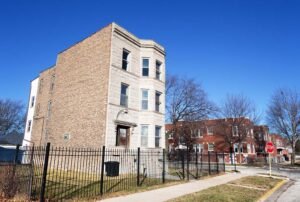Click here to download accompanying slides.
For a deeper dive into the lessons learned from the Greensboro co-op, please see this companion article released the same day as this webinar: “The Ballad of the RCC, or ‘Nice Try. Now Try Again,’” by Marnie Thompson, Sohnie Black, and Ed Whitfield.
Sign up for our free newsletters
Subscribe to NPQ's newsletters to have our top stories delivered directly to your inbox.
By signing up, you agree to our privacy policy and terms of use, and to receive messages from NPQ and our partners.
Often, we learn more from our failures than our successes. In that light, in partnership with the Fund for Democratic Communities (F4DC)—a local private foundation in Greensboro, North Carolina—we bring you a vitally important story about a dream that fell short, a dream that was known as the Renaissance Community Co-op (RCC), and the lessons that were learned from that experience.
This webinar, recorded on December 17, 2019, covers a wide range of topics, including the following:
- What the RCC’s vision was, and how the idea of a food co-op turned into a living, breathing business
- What competitive challenges—both expected and unexpected—did RCC face? And why, even in a food desert, was it so hard to attract a sufficient number of paying customers?
- What does “capacity” mean in the context of a food co-op development in a low-income, Black community—and what needs to be done to address that?
- What role did management errors play in the failure of RCC? And what can be done to address the management gap in the food co-op sector (and beyond)?
- The importance of marketing—and what is required for a new startup to “break through”
- How to maintain the movement aspect of your cooperative after you open your doors
- What is required of community groups to build a strong and lasting base for economic democracy?
On this webinar, moderated by NPQ senior editor Steve Dubb, are three of the 1,300 participants in the Greensboro effort. Two of our presenters work for the Fund for Democratic Communities, which was a primary technical assistance agent and funder to the RCC project. Sohnie Black is a community organizer who has worked for F4DC for the past seven years. Ed Whitfield is a social critic, writer, and community activist who has lived in Greensboro since 1970 and who is Co-Managing Director of F4DC. Roodline Volcy served as chair of the RCC board that had to vote to close the co-op down; she has also been on staff at the Democracy at Work Institute (DAWI) since 2016.













